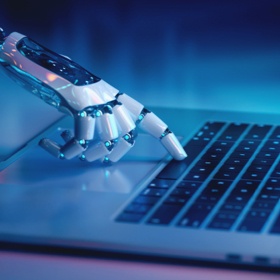Artificial intelligence (AI) has made its mark as a game-changing tool. From automated content creation to advanced keyword research and predictive analytics, AI has undeniably streamlined many aspects of search engine optimization (SEO). However, while these tools offer efficiency and scalability, they are not the ultimate answer to SEO success. Sustainable SEO requires a balance between technology and human creativity, strategy, and adaptability.
The Limitations of AI in SEO
1. Lack of Genuine Creativity and Authenticity
AI tools are exceptional at generating content quickly, but they lack the human touch that makes content engaging, relatable, and, most importantly, authentic. AI-generated content often feels formulaic and repetitive because it relies on patterns and data rather than emotional intelligence and storytelling. Search engines, particularly Google, are increasingly prioritizing content that demonstrates experience, expertise, authoritativeness, and trustworthiness (E-E-A-T). AI alone cannot produce deeply insightful, experience-driven content that establishes true credibility.
2. Inability to Adapt
SEO is not just about following algorithms; it’s about understanding the intent behind searches and adapting to evolving user behavior. While AI can analyze vast amounts of data to predict trends, it struggles with nuanced shifts in consumer interests and emerging industry-specific terminology.
3. Generic SEO Strategies
Since AI tools pull from existing data, they often create cookie-cutter strategies that don’t differentiate brands from their competitors. If everyone relies on AI-generated content and keyword strategies, the digital space becomes saturated with similar content, making it harder to stand out. Creativity, unique value propositions, and a deep understanding of the target audience are essential elements that AI cannot independently develop.
4. Ethical and Quality Concerns
AI-powered content tools often scrape and repackage existing information rather than generating new insights. This raises ethical concerns about plagiarism and content originality. Additionally, AI lacks the ability to fact-check in real time, which can result in the spread of outdated or inaccurate information. Search engines penalize low-quality or misleading content, making it risky to rely solely on AI-driven content production.
5. SEO Success Requires a Holistic Approach
Effective SEO isn’t just about churning out content or optimizing keywords, it involves technical SEO, backlink strategies, user experience (UX), and engagement metrics. AI can assist with these aspects, but it cannot strategize and execute a long-term vision in the way human experts can. A comprehensive SEO approach requires adaptability, creative problem-solving, and ongoing refinement, qualities that come from human expertise.
The Right Balance: AI as a Tool, Not a Replacement
AI is a powerful asset when used correctly, but it should complement, not replace, human expertise. Successful SEO strategies incorporate AI-driven insights while emphasizing original thought, strategic planning, and a deep understanding of audience needs.
If you're ready to kick off your next SEO project with the JH team, don't hesitate to reach out or give us a call today.




